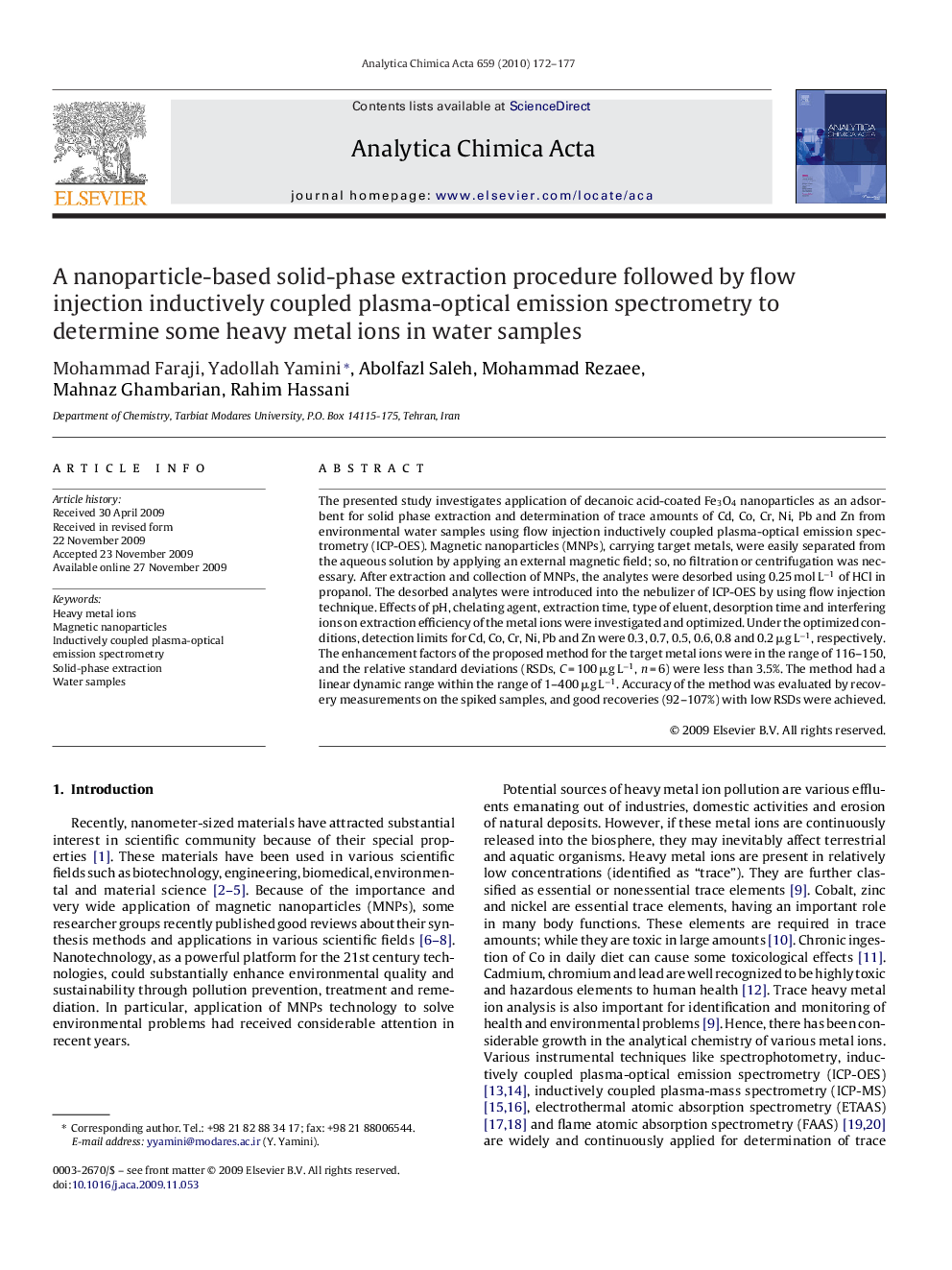| Article ID | Journal | Published Year | Pages | File Type |
|---|---|---|---|---|
| 1167999 | Analytica Chimica Acta | 2010 | 6 Pages |
The presented study investigates application of decanoic acid-coated Fe3O4 nanoparticles as an adsorbent for solid phase extraction and determination of trace amounts of Cd, Co, Cr, Ni, Pb and Zn from environmental water samples using flow injection inductively coupled plasma-optical emission spectrometry (ICP-OES). Magnetic nanoparticles (MNPs), carrying target metals, were easily separated from the aqueous solution by applying an external magnetic field; so, no filtration or centrifugation was necessary. After extraction and collection of MNPs, the analytes were desorbed using 0.25 mol L−1 of HCl in propanol. The desorbed analytes were introduced into the nebulizer of ICP-OES by using flow injection technique. Effects of pH, chelating agent, extraction time, type of eluent, desorption time and interfering ions on extraction efficiency of the metal ions were investigated and optimized. Under the optimized conditions, detection limits for Cd, Co, Cr, Ni, Pb and Zn were 0.3, 0.7, 0.5, 0.6, 0.8 and 0.2 μg L−1, respectively. The enhancement factors of the proposed method for the target metal ions were in the range of 116–150, and the relative standard deviations (RSDs, C = 100 μg L−1, n = 6) were less than 3.5%. The method had a linear dynamic range within the range of 1–400 μg L−1. Accuracy of the method was evaluated by recovery measurements on the spiked samples, and good recoveries (92–107%) with low RSDs were achieved.
